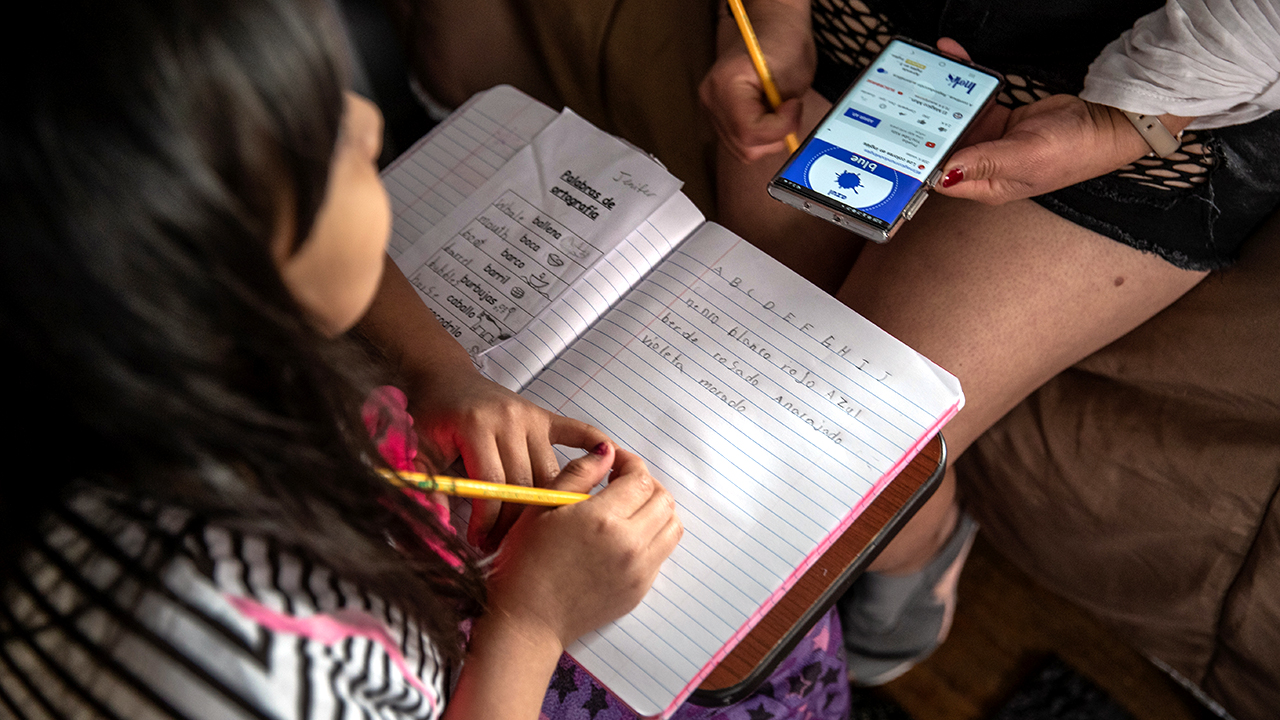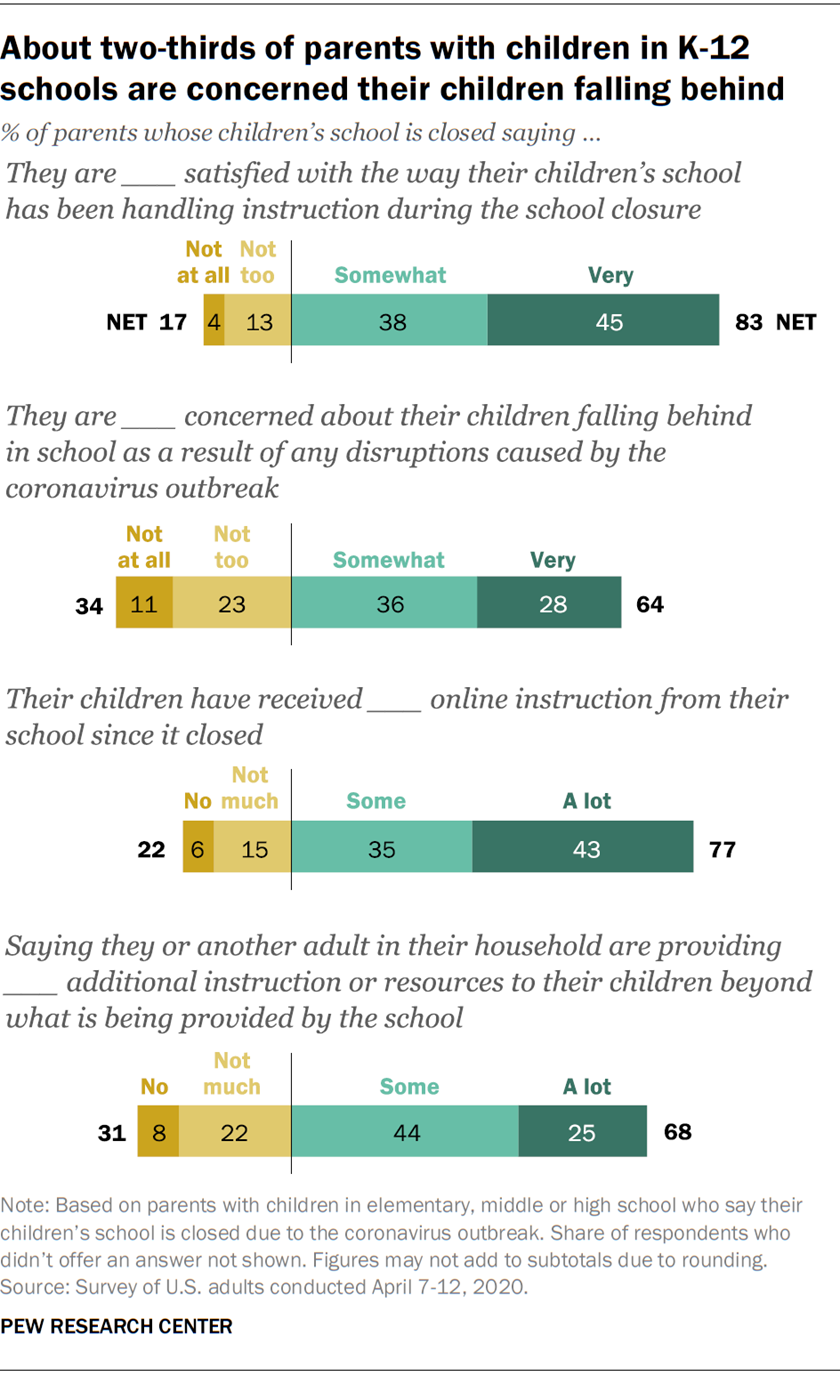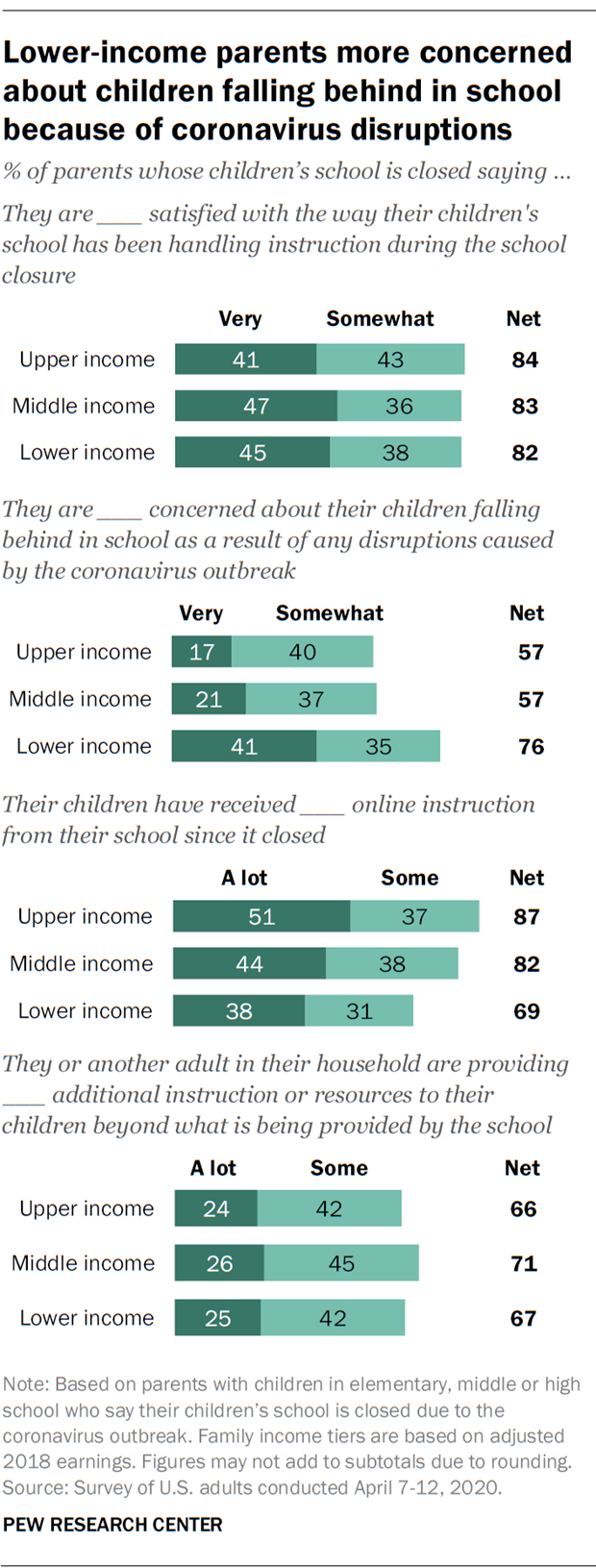
 With K-12 schools now closed in all 50 states and the District of Columbia because of the coronavirus outbreak, most parents with children in elementary, middle or high school who say their children’s school is currently closed (83%) say they are at least somewhat satisfied with the way their children’s school has been handling instruction during the closures. Still, roughly two-thirds (64%) express at least some concern about their children falling behind in school, with 28% saying they are very concerned, according to a new Pew Research Center survey. Lower-income parents express more concern than those in higher-income groups about their children potentially falling behind.
With K-12 schools now closed in all 50 states and the District of Columbia because of the coronavirus outbreak, most parents with children in elementary, middle or high school who say their children’s school is currently closed (83%) say they are at least somewhat satisfied with the way their children’s school has been handling instruction during the closures. Still, roughly two-thirds (64%) express at least some concern about their children falling behind in school, with 28% saying they are very concerned, according to a new Pew Research Center survey. Lower-income parents express more concern than those in higher-income groups about their children potentially falling behind.
The findings in this analysis are based on the 94% of parents of K-12 students who say their children’s school is currently closed. The analysis comes as education leaders warn that students’ learning may be harmed due to the widespread school closures.
Pew Research Center conducted this study to understand how parents of children in K-12 schools assess the impact of the coronavirus outbreak on their children’s education. This analysis is based on 1,079 U.S. adults who say they have children in elementary, middle or high school whose schools closed due to the coronavirus outbreak. Small shares of parents say their children’s school is not closed or that their children are home-schooled (3% each). The data were collected as a part of a larger survey conducted April 7-12, 2020. Everyone who took part is a member of Pew Research Center’s American Trends Panel (ATP), an online survey panel that is recruited through national, random sampling of residential addresses. This way nearly all U.S. adults have a chance of selection. The survey is weighted to be representative of the U.S. adult population by gender, race, ethnicity, partisan affiliation, education and other categories. Read more about the ATP’s methodology.
To create the upper-, middle- and lower-income tiers used in this report, family incomes based on 2018 earnings were adjusted for differences in purchasing power by geographic region and for household sizes. Middle income is defined as two-thirds to double the median annual income for all panelists. Lower income falls below that range; upper income falls above it. For more information about how the income tiers were determined, please see here.
Here are the questions used for this report, along with responses, and its methodology.
 There are differences in the amount of online instruction parents say their children have received during the coronavirus-related closures. Some 43% of parents say their children’s K-12 school has provided a lot of online instruction since it closed, while 35% say the school has provided some. (Online instruction can include online assignments, meetings with teachers or instructional videos.)
There are differences in the amount of online instruction parents say their children have received during the coronavirus-related closures. Some 43% of parents say their children’s K-12 school has provided a lot of online instruction since it closed, while 35% say the school has provided some. (Online instruction can include online assignments, meetings with teachers or instructional videos.)
There are also differences in how much instruction parents themselves – or other adults in the household – are providing to their children during the outbreak. About seven-in-ten parents say they or another adult have provided a lot (25%) or some (44%) instruction to their children beyond what is being provided by the school.
These experiences vary somewhat by income level. About half of upper-income parents (51%) say their elementary, middle or high school children have received a lot of online instruction since their school closed; a smaller share of those in the lower income tier (38%) say the same. Conversely, about three-in-ten lower-income parents (29%) say their children’s school has provided not much or no instruction, versus 13% of those in the upper income group who say this. Among middle-income parents, 44% say their children have received a lot of online instruction from their school.
Upper-income parents are no more likely than other parents to say they or another adult in their household are providing additional instruction or resources to their children beyond what is being provided by their school. Across income groups, about a quarter of parents say they are providing a lot of additional instruction or resources, and about four-in-ten in each group say they are providing some.
Meanwhile, about four-in-ten lower-income parents (41%) are very concerned about their children falling behind in school as a result of any disruptions caused by the coronavirus outbreak. By comparison, 21% of parents with middle incomes and 17% of those with upper incomes say they are very concerned about this.
For the most part, mothers and fathers offer similar assessments of how their children’s school has been handling instruction during the school closures and the amount of online instruction their children are receiving. But mothers (68%) are more likely than fathers (59%) to say they are at least somewhat concerned about their children falling behind academically as a result of disruptions caused by the outbreak.
Note: Here are the questions used for this report, along with responses, and its methodology.



